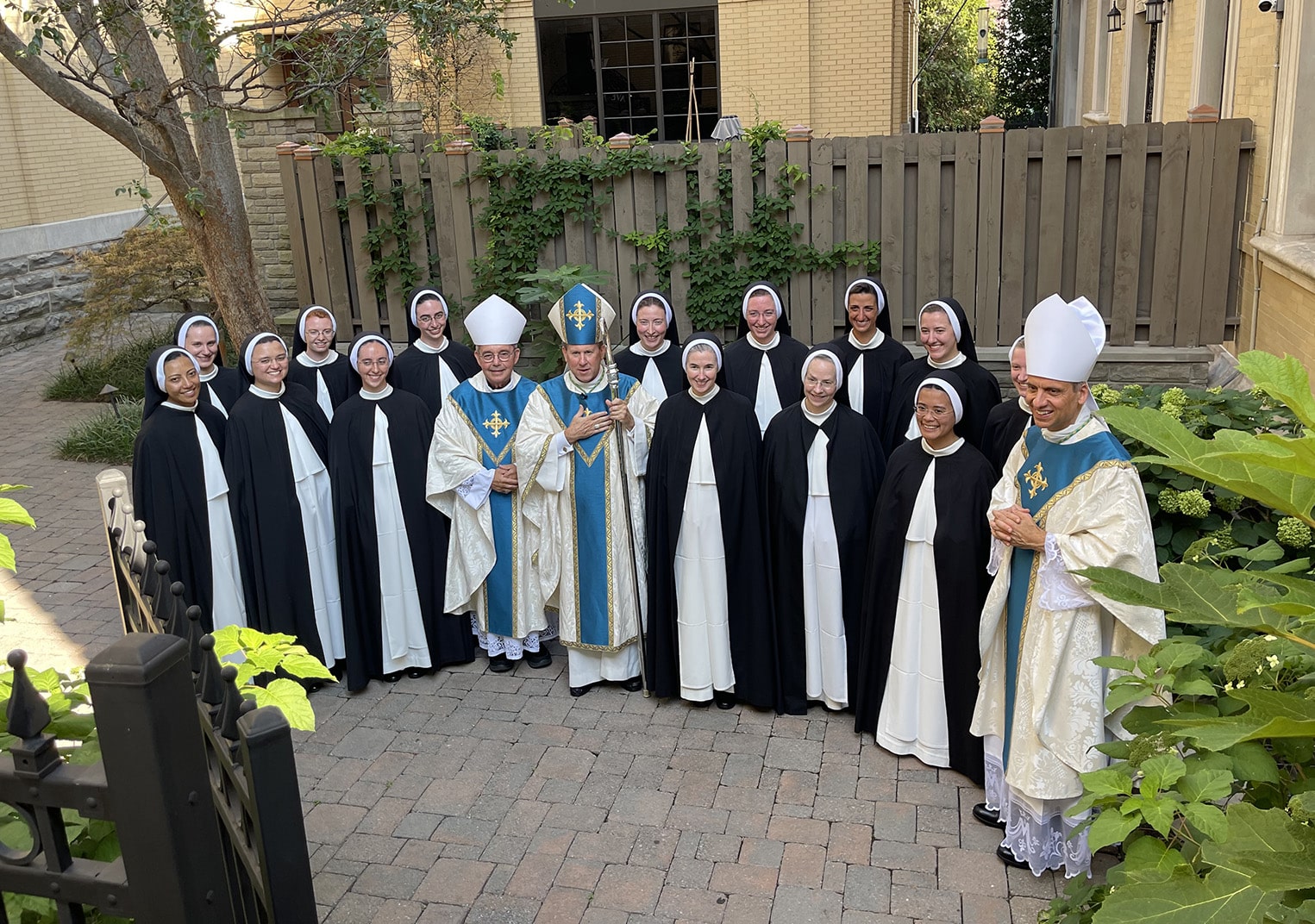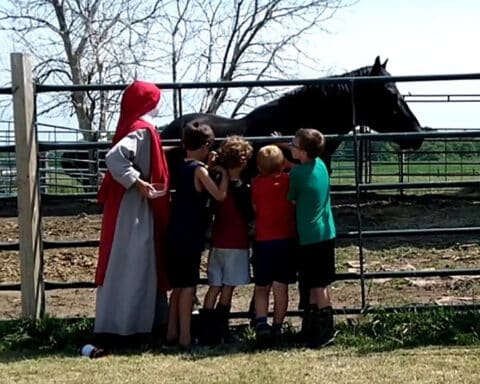Every summer, Catholic history is made in Nashville, when the Dominican Sisters of St. Cecilia, headquartered in the Tennessee city for 163 years, receive new members. History is made because while communities of women religious are almost fading away, the Nashville Dominicans are surging ahead in numbers.
In mid-July, these sisters received 12 new members, from all parts of the country, along with a Canadian and an Australian. The profession of lifelong vows indicated one thing: their love for the Lord above anything else. Their vows were as basically Christian and New Testament-centered as anything in the history, or practice, of religion.
Jesus said, “If you love me, you will keep my commandments” (Jn 14:15). People associate “commandments” with the Ten Commandments given by God to Moses. It is appropriate, but the Lord elaborated, detailing the commandments, pinpointing ideals, set in real-life situations, in human nature, in faith.
Vows of poverty, chastity and obedience
The sisters vowed poverty, not to own anything in their own names. It seems radical, even ridiculous, in this day and time when so much attention is devoted to obtaining, and holding onto, material assets, the “good things of life.”
The Lord said that he had nothing, not even a place to lay his head (cf. Lk 9:58). The Christian ideal of poverty is not to deprive self, to be miserable, but to liberate self. Forget the race to the top. Life is too short. Face facts. True security, a sense of worth, and peace of soul result not in owning things, but in being free to live without counting the cost or being paid. See personal needs, and human needs, in their reality, illuminated by Christian perspective and, in that most demanding test of faith, trust in the Lord.
The new sisters vowed chastity, an obligation for every Christian, a challenge for most. In choosing to be chaste, and moreover not to be married, for their entire lives, the nuns accepted the advice of Jesus, trying to be perfect disciples. While declaring Christian marriage holy and good, the Lord said the ideal Christian remains unmarried, focused only on God. St. Paul said the same (cf. Mt 19:10-12; 1 Cor 7:1-20).
They vowed obedience, for their lives within a community are dedicated to personal holiness and to the Lord’s objective of making known God’s mercy to all the world, literally. Acting with their community, in the Church in every respect, embracing the Church’s mission and tasks as their own, the new sisters vowed to obey the structures and leaders of their congregation.
A debt beyond measure
The first Christians, many of whom knew Jesus, lived their lives, and often willingly sacrificed their lives, in unqualified, complete pursuit of the New Testament ideals of poverty, chastity and obedience, trying in every way to imitate Jesus, to love Jesus, and to serve Jesus, in ways specifically recalled in the Scriptures.
Communities of religious men and women continued wonderfully, at times miraculously, the Lord’s work of salvation, dating from 500 A.D., when St. Benedict and his sister, St. Scholastica, formed the first monastery and first convent, respectively, in the European Church, from which American Catholicism descends, starting a network of monasteries and convents that resulted in the Christianization, civilization and betterment of humankind. The world owes Catholic religious a debt beyond measure.
The Protestant Reformers weakened Christianity by downplaying, and even spurning poverty, chastity and obedience. They repudiated Christian history, brilliant with stories of monks and nuns, devoted to their vows, loving the Lord, who brought the words and mercy of Christ to the world, along with the proof, provided by their own experiences, that professing Christianity is possible for anyone, and that making any sacrifice to follow Christ is worth any price. What a tragedy.
As the new Nashville Dominicans professed their vows for life, in the Romanesque grandeur of Nashville’s old Cathedral of the Incarnation, they renewed the ancient glory of the Church, and they prompt hope for its future.





